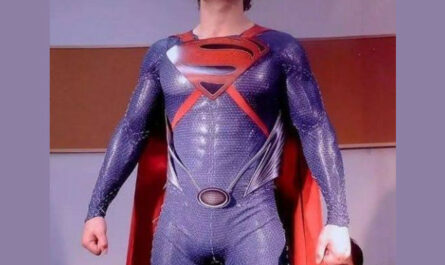The opening scene of Fight Club starts with a gun shoved in the narrator’s mouth. The narrator (Edward Norton) then takes us back to the beginning of how he found himself in that position. This masterful opening immediately grabs the audience’s attention and foreshadows events to come. We know something big is coming – we just don’t know what. This is one example of the genius of David Fincher’s direction.
As the narrator suffers from worsening insomnia, he seeks solace by attending support groups for diseases he doesn’t have. Attending these meetings gives his meaningless life some purpose. However, his exploits catch up to him when he runs into Marla Singer (Helena Bonham Carter) also crashing these support groups. Her presence deprives him of the emotional release he’s grown dependent on. This plants the early seeds of the narrator’s deteriorating mental state that eventually leads to the birth of Tyler Durden.
After his condo mysteriously blows up, the narrator moves in with Tyler Durden (Brad Pitt), who philosophizes about the pointlessness of modern consumer culture. Tyler gives the narrator’s life meaning by encouraging him to unlock his masculine power through bare knuckle fighting. As more men join their brutal “fight club,” Tyler starts taking the group down an increasingly subversive and dangerous path.
One of the most discussed themes in Fight Club is the critique of modern consumerism and Corporate America. After meeting Tyler Durden, the narrator realizes he’s been brainwashed as a “slave to advertising.” The Ikea catalog he obsesses over gets ripped to shreds – much like his “cookie cutter” condo furnished with mass-produced IKEA products. The message is clear: mass consumer goods don’t provide lasting happiness or fulfillment.
Throughout the film Fincher brilliants uses visual and audio cues to emphasize key plot points. For example, almost every time Brad Pitt appears on screen there’s a distinctive flashing cue accompanied by an unsettling sound effect. This audio/visual trigger conditions us to know something is about go down when we see or hear these signals. These subtle yet visceral cues put us on edge for Tyler Durden’s next chaotic move.
As the narrator and Tyler launch their bare knuckle fighting ring, renamed “Fight Club,” more and more beaten down men show up hungry for meaning in their lives. Tyler feeds on their weakness by manipulating them to advance his anti-materialistic message through violence and mayhem.
By the final act, the narrator starts to realize Project Mayhem has gotten out of control under Tyler Durden’s leadership. When he tries reining Tyler in, Tyler responds with the chilling line: “Why do you think I blew up your condo?” This key moment reveals the full extent of the narrator’s damaged psyche. The intense argument that follows ends with the narrator putting a gun in his mouth and pulling the trigger – only to discover it’s unloaded. After knocking himself unconscious, he finally realizes that he himself is Tyler Durden.
Everything we’ve been shown since the condo explosion has been the narrator’s dissociative fantasy. Every time we saw Tyler and the narrator together was the narrator arguing with himself. Tyler Durden didn’t exist – he was a projection of the narrator’s Id created to shield him from the grim reality of his psychosis.
The film’s final scenes bring the story full circle back to the gun in the narrator’s mouth. By conquering his inner Tyler Durden demon, he escapes the grip of his psychosis long enough to undo the damage he helped cause. After symbolically “killing” Tyler by shooting himself, he watches his alter ego’s destructive plans go up in smoke with the city’s financial institutions.
Fight Club works brilliantly on many levels. On the surface it’s an adrenaline rush of brutal fighting action complemented by Fincher’s virtuoso filmmaking. But the deeper level shows man’s internal struggle in finding meaning in modernity’s spiritual wasteland. By tapping into themes of disenfranchised masculinity and rage against consumer conformity, Fight Club earns its status as a true cinematic masterpiece.



